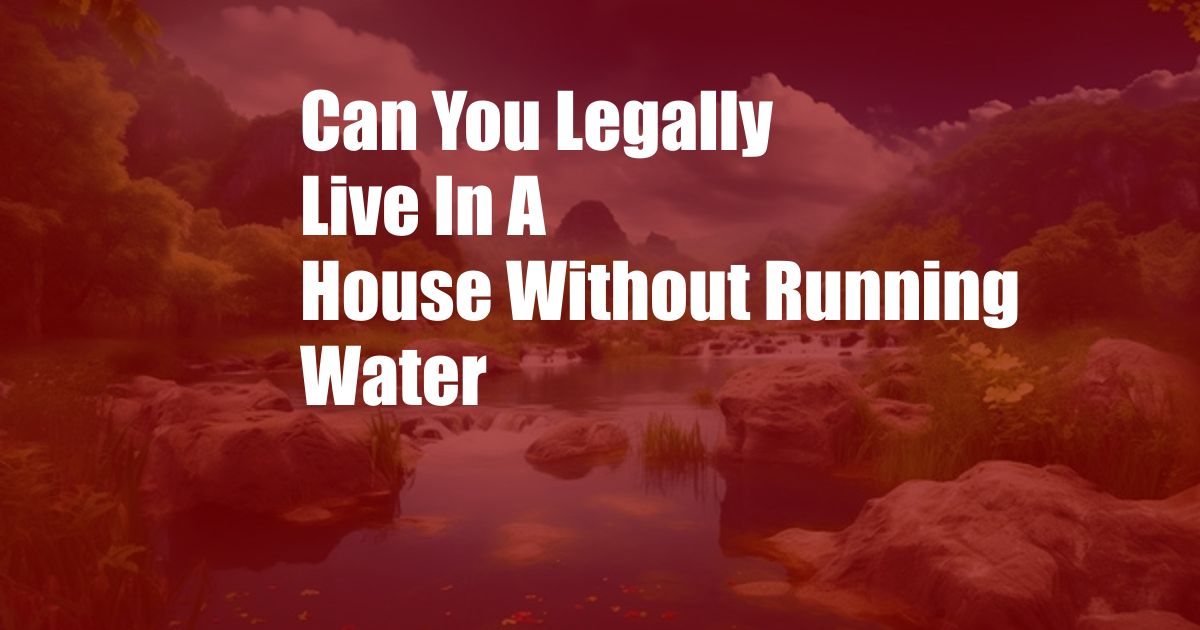
Can You Legally Live in a House Without Running Water?
Once upon a time, running water was a luxury. Today, it’s a necessity that most of us take for granted. But what happens when you don’t have access to running water? Can you legally live in a house without it?
The answer to this question depends on a number of factors, including the laws in your state or county, the type of house you live in, and the reason why you don’t have access to running water.
Health and Safety Concerns
Living in a house without running water can pose a number of health and safety risks. Without running water, you can’t wash your hands, bathe, or cook food safely. You’re also more likely to be exposed to bacteria and viruses that can cause illness.
In some cases, living in a house without running water can even be illegal. For example, in California, it is illegal to live in a house that does not have a working toilet and sink. In other states, there may be specific laws that require landlords to provide tenants with access to running water.
Off-Grid Living
If you live off the grid, you may not have access to running water. This is because off-grid homes are not connected to a municipal water supply. Instead, they rely on alternative water sources, such as wells, cisterns, or rainwater collection systems.
Living off the grid without running water can be challenging, but it is not illegal. However, you need to take steps to ensure that you have a safe and reliable water supply. This may involve installing a water purification system or boiling water before drinking it.
Temporary Situations
There may be times when you temporarily lose access to running water. This could be due to a power outage, a broken pipe, or a natural disaster. In these cases, it is important to take steps to conserve water and find a safe alternative water source.
You can conserve water by taking shorter showers, washing dishes by hand, and using a low-flow toilet. You can also find a safe alternative water source by boiling water from a well or cistern, or by collecting rainwater.
Tips for Living Without Running Water
If you do find yourself living in a house without running water, there are a few things you can do to make the experience more comfortable and safe.
- Install a water purification system. This will help to remove bacteria and viruses from your water, making it safe to drink.
- Collect rainwater. Rainwater can be used for drinking, bathing, and washing dishes.
- Boil water before drinking it. This will kill any bacteria or viruses that may be present.
- Conserve water. Take shorter showers, wash dishes by hand, and use a low-flow toilet.
- Find a safe alternative water source. This could be a well, cistern, or rainwater collection system.
Conclusion
Living in a house without running water can be challenging, but it is not impossible. By taking the proper precautions, you can make the experience more comfortable and safe.
Are you interested in learning more about living without running water?